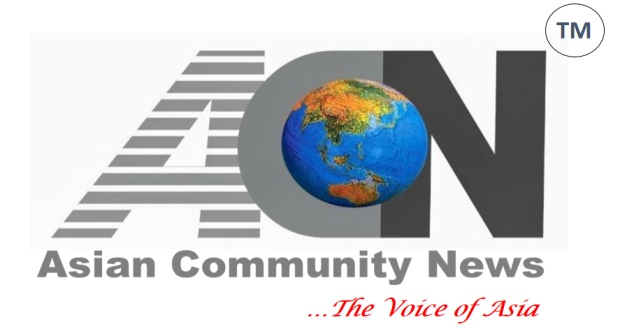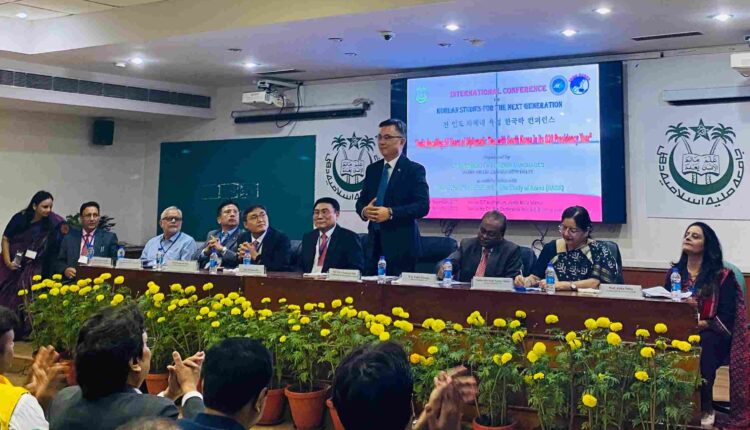International Korean Studies Conference for Next Generation 2023 begins at JMI
전 인도 차세대 육성 한국학 컨퍼런스, 2023
NEW DELHI: Under the Seed Project of the Academy of Korean Studies, the Department of Foreign Languages Jamia Milia Islamia in collaboration with the Researchers’ Association for The Study of Korea (RASK) organized the International Korean Studies Conference for Next Generation, 2023 (전 인도 차세대 육성 한국학 컨퍼런스, 2023) at Jamia Milia Islamia campus in New Delhi on Friday.
Titled “India Recalling 50 Years of Diplomatic Ties with South Korea in its G20 Presidency Year”, the conference was addressed by researchers and scholars from India and South Korea. Padma Shri Prof. Najma Akhtar, Former Vice Chancellor, Jamia Millia Islamia New Delhi, Prof. Aloka Dutta, President of RASK, Political Science, Bhagini Nivedita College, University of Delhi, and Chang Jae-Bok, Ambassador of the Republic of Korea also addressed the event.
In his address, Chang Jae-Bok said, “Our nations share a profound bond, rooted in historical connections, shared faith, and solidarity during the Korean War. Today, our partnership is comprehensive, with high-level visits setting the stage for bilateral cooperation. Economically, our ties have flourished, witnessing a historic trade high of 28 billion US dollars in 2022, a remarkable ascent from the 400 million US dollars during the establishment of diplomatic relations. Korean investment, exceeding 7.9 billion US dollars, contributes significantly to India’s economic growth.”.
Prof. Do-young Kim, Chairman, RASK & Director, Korean Studies, JMI delivered a lecture on “Future Vision of RASK” while Prof. Eqbal Hussain, Offg. Vice Chancellor, Jamia Millia Islamia New Delhi.
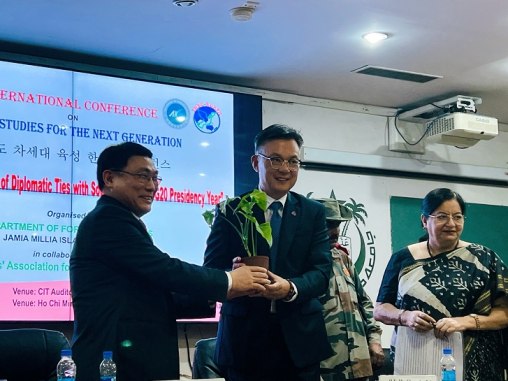 Prof. Kim said, “It is a great honor and pleasure for me to introduce the visions of RASK, Korean studies in India and Korean Studies of Jamia Millia Islamia to you at the occasion of the 50th year of Indo-Korea diplomatic relations seminar titled “India Recalling 50 Years of Diplomatic Ties with South Korea, in its G20 Presidency Year”. With the help of the Embassy of the Republic of Korea and the Academy of Korean Studies, we have been privileged to hold a seminar year after year for the last 16 years. At the same time, this is the third year of AKS project for JMI -RASK seminar as well. I would like to share three side visions with you.”
Prof. Kim said, “It is a great honor and pleasure for me to introduce the visions of RASK, Korean studies in India and Korean Studies of Jamia Millia Islamia to you at the occasion of the 50th year of Indo-Korea diplomatic relations seminar titled “India Recalling 50 Years of Diplomatic Ties with South Korea, in its G20 Presidency Year”. With the help of the Embassy of the Republic of Korea and the Academy of Korean Studies, we have been privileged to hold a seminar year after year for the last 16 years. At the same time, this is the third year of AKS project for JMI -RASK seminar as well. I would like to share three side visions with you.”
Kwangil Lee, Head, Peaceful Unification Advisory Council, Prof. Shahid Tasleem, Head, Department of Foreign Languages, JMI, and Prof. Mohammad Ishaque, Dean, Faculty of Humanities and Languages, JMI addressed the audience. A Korean dance and song performance was also delivered by the students of Korean Language.
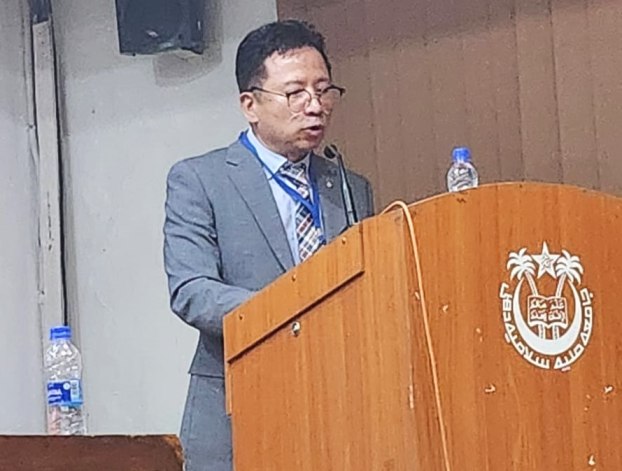
Kwangil Lee said, “Indeed, with the increasing interest and popularity of Korea in India, it is imperative for related academic societies to pay even more attention. Especially this year, the 50th anniversary of the Korea-India relationship. At the same time, We would require various events to commemorate this should provide a bridgehead to further promote exchanges of culture and human resources between the two countries. Concentrates and demands for knowledge of Korea by the world are rapidly increasing, and the elaborated research and study will be developed by you all. I believe this must be strengthening the Korea-India tie for a better future.”
Prof. Byungwon Woo, Professor of International Relations, Department of Political Science, Deputy Director, Institute of East and West Studies, Yonsei University, South Korea delivered the Keynote Address “Global Leadership of India and Korea”.
Event’s session I “Politics & International Relations” chaired by Dr. Sandip Kumar Mishra, Department of Korean Studies, JNU with Session In-Charge Prof. Aloka Dutta with Bhagini Nivetita College, University of Delhi, and Assistant Session In-Charge – Priyanka Yadav witnessed Ankit Tomar, Professor, Delhi University & Research Scholar, Jawaharlal Nehru University delivering his paper on “Celebrating Synergy: India and South Korea’s Collaborative Diplomacy during India’s G20 Presidency Year”, Vikas, Research Scholar, Sikkim University on “Understanding India, South Korea’s Historical Experience from Non-Western International Relations Theory within Truly Global Historical Context”, Abhishek Ranjan Research Scholars, JNU, New Delhi on “A Study of India-South Korea Climate Relations and Cooperation”, and Rachit Goel, Scholar, Jawaharlal Nehru University on“The Role of Confucian Traditions in Korean Bureaucracy and Its Implications for India” Research.
Baljeet Singh, Research Scholar, DAS, University of Delhi spoke on the subject “Emergence of New India under Modi Era: Changing Foreign Policy Dynamics through Act East Policy towards South Korea” while Nemneilhing Kipgen, Research Scholar, University of Delhi delivered a note on “Culture as a Soft component of South Korea’s Foreign Policy: From Culture as Soft Resource to Producing Cultural Soft Power.”
Session II titled “Security” was chaired by J.K. Tripathi, Indian Foreign Service Officer (Retd.) with Session in Charge Dr. Sanjeev Srivastava and Assistant Session In-Charge Apurva Beniwal.
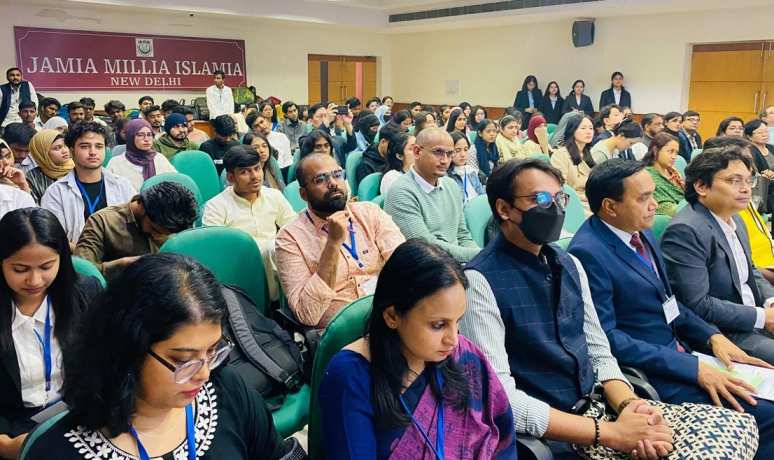 Prof. Mukesh Ranjan, Prof, Department of English, JMI made an interesting presentation on a subject “Cursed Bunny: Karma Pays a Visit” while Trithesh Nandan, Editor (Research), ABP News, New Delhi spoke on “Seizing the Momentum in the Geopolitics of the Semiconductor – Korea’s Race to Dominate the World’s most Critical Technology”. Research Scholar, CEAS JNU, New Delhi Apurva Beniwal delivered a note on “Deciphering North Korea’s Nuclear Quest: reasons and guiding factors”, Research Scholar, CEAS, Jawaharlal Nehru University Priyanka Yadav spoke on “The Transition of Order in Indo[1]Pacific: The Case of India and The Republic of Korea”, Assistant Professor, University of Delhi Sanjeev Srivastava on “Assessing India-South Korea Defence Cooperation: Current State, Strategic Imperatives and Prospects for Deeper Collaboration” and Research Scholar, DEAS, University of Delhi Abhishek Sharma on “Understanding the making of Indo[1]Pacific in Seoul and New Delhi: A Case study of a US ally and a partner”.
Prof. Mukesh Ranjan, Prof, Department of English, JMI made an interesting presentation on a subject “Cursed Bunny: Karma Pays a Visit” while Trithesh Nandan, Editor (Research), ABP News, New Delhi spoke on “Seizing the Momentum in the Geopolitics of the Semiconductor – Korea’s Race to Dominate the World’s most Critical Technology”. Research Scholar, CEAS JNU, New Delhi Apurva Beniwal delivered a note on “Deciphering North Korea’s Nuclear Quest: reasons and guiding factors”, Research Scholar, CEAS, Jawaharlal Nehru University Priyanka Yadav spoke on “The Transition of Order in Indo[1]Pacific: The Case of India and The Republic of Korea”, Assistant Professor, University of Delhi Sanjeev Srivastava on “Assessing India-South Korea Defence Cooperation: Current State, Strategic Imperatives and Prospects for Deeper Collaboration” and Research Scholar, DEAS, University of Delhi Abhishek Sharma on “Understanding the making of Indo[1]Pacific in Seoul and New Delhi: A Case study of a US ally and a partner”.
